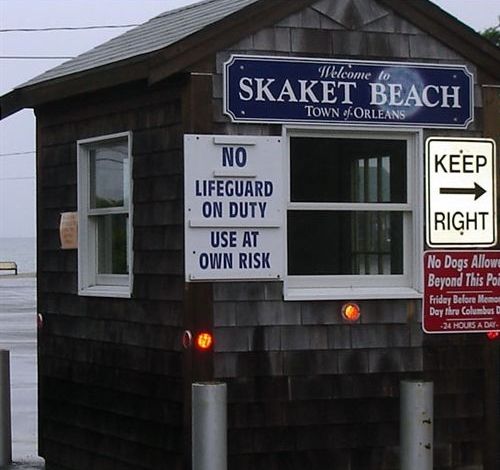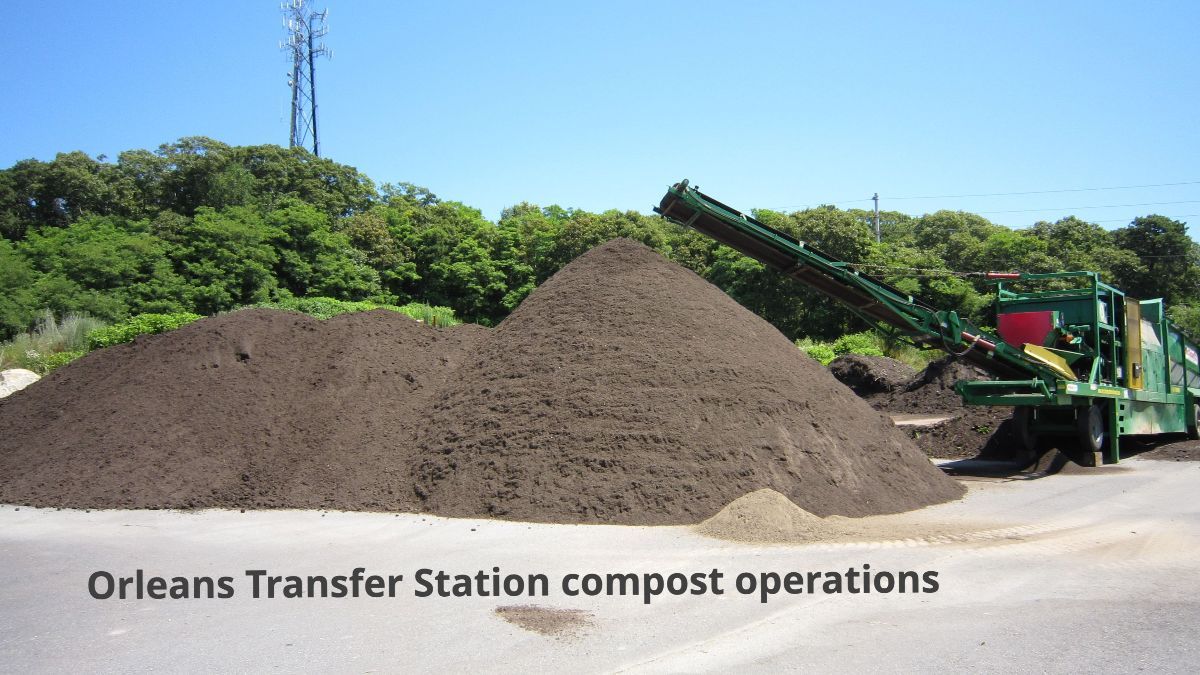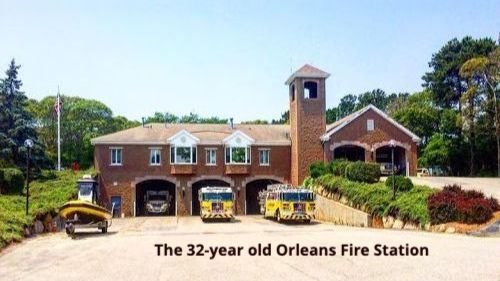Issue No.1 – Should beach stickers carry fees or be “free”? Should Orleans establish Enterprise Funds for certain town operations and services? Do Orleans voters want to fund feasibility studies for several big-ticket projects?

Beach Stickers: Fee or Not?
Orleans is the only town on Cape Cod that doesn’t charge residents/taxpayers a separate fee for beach parking. We receive two "free" beach stickers per year. Due to pandemic shortfalls, the Orleans Select Board is asking for a fee of $25 for each residential beach sticker beginning next summer.
Why? A couple reasons. First, despite the widely-held belief that Nauset and Skaket are cash-cows for the Town of Orleans, our two glorious beaches have been operating at a deficit for some years. Expenses have risen -- due to sharks, erosion, and debt. Also, there's a trend of fewer paying customers; half the cars in the beach parking lots this summer had residential stickers. In 2020, including over-sand operations, there was a loss of $635,000. Our popular beach stickers aren’t really "free" if taxpayers must cover the difference.
Another argument for a fee: potential grant money for Orleans. A town seeking outside funding is expected to demonstrate that residents, and not just visitors, contribute to fee-generated income that can be matched by a grant. Fees charged in the other 14 Cape Cod towns range from $20 - $50 per sticker. In Wellfleet and Chatham, residents are able to combine beach parking permits with a transfer station pass, streamlining the administration process. In Provincetown, residents pay $55 - $150 for general parking permits for the town and the town beaches. The Orleans Select Board is considering the possibility of requiring parking permits at some of our town landings where non-resident boat trailers have taken over. Residents could park at these landings using their regular beach stickers.
Charging a fee would generate about $200,000 in new revenue, which means that general tax revenue would need to cover the remaining $400,000 deficit. Some residents wonder why over-sand fees couldn't be raised instead.
Should Orleans charge residents for beach parking? This has been debated and defeated at Town Meeting before, most recently in 2019. And it will be debated again on October 31, at the "drive-in" Special Town Meeting at Nauset Beach Parking Lot. The sticker proposal – Article 26 in the Town Meeting Warrant - requires a simple majority to pass.

Five Enterprise Funds
The town is asking voters to create “enterprise” funds for five different operations/services provided by Orleans – for Rock Harbor operations, beach operations, sewer operations, boat moorings and the transfer station.
What’s an enterprise fund?
An enterprise fund is an accounting and financial reporting mechanism used for municipal services for which a fee is charged. It demonstrates the total cost of a service provided to residents by consolidating both direct and indirect costs. This offers more transparency for voters. For example, the Orleans Water Department is operated essentially as an enterprise fund. If you look at the Water Department budget, you’ll see its revenue and expenditures clearly.
Enterprise funds are not necessarily self-supporting, but enterprise accounting shows the total cost of providing a service. Voters can then decide how to recover shortfalls -- either through user fees, taxes, or a combination of both. This isn't a particularly controversial issue, but in Articles 4 through 8 of the Town Warrant, voters decide whether to approve this change.

Three Feasibility Studies
Orleans voters are being asked to consider three new projects – some with big price tags. Each of these projects is being introduced with a proposal for a “feasibility study.” A vote for a feasibility study is a vote of interest and/or confidence in a future expenditure. It is the first chance voters get to consider a town project.
A feasibility study leads to the next step – presenting a design at a future Town Meeting, a discussion of specific and definite uses, an estimated cost and other data that's crucial to making a final decision. Coming up on Oct. 31, we will be asked to weigh in on feasibility studies for:
- A new or renovated Orleans Fire Station. This feasibility study was prompted by a comprehensive report on the condition of the 32-year old structure that many found alarming. It was assessed in need of adequate ventilation, among other issues. A feasibility study of $100,000 is proposed, requiring a three-quarters majority vote, along with passing of a Proposition 2-1/2 debt exclusion at the Special Election on Dec. 1.
- An Orleans Community Center, to be built on existing or new town property. The idea of a community center is not new; it has been appearing before Orleans voters for 30 years. This year, the proposal for a feasibility study was prompted by a survey organized by the Recreation Advisory Committee, and followed by a citizens’ petition. The study would cost $75,000 and require a three-quarters majority vote, as well as a Proposition 2-1/2 override.
- The Governor Prence Inn of Orleans is the subject of a feasibility study to consider potential reuses for the five-acre property on Route 6A, including affordable housing. The Town will vote to transfer $15,000 from Free Cash for the study. The Affordable Housing Trust has expressed interest in providing supplemental funding. In order to pass, it needs a simple majority with no Proposition 2-1/2 override required.
Things to consider as you ponder the feasibility studies proposed in Articles 13, 19 and 20: First, take a look at the votes cast by the Select Board and Finance Committee. Both voted unanimously in favor of the Fire Station study. The Community Center, on the other hand, did not find the same support. All five members of the Select Board voted in favor of exploring the creation of a community center while all seven members of the Finance Committee voted in opposition. This ambivalence echoes a divide in town. The idea of an Orleans Community Center is really exciting -- who wouldn't want one? -- but voters who worry about finances, and the timing of this big-ticket project, are less enthusiastic.
The Gov. Prence property study has fewer hurdles. Understandably, it has already received a fair amount of town and media interest, along with the financial support of the Affordable Housing Trust. It needs a simple majority to pass.

Tax Relief for Volunteers
A proposal offering property tax reduction for property owners over 60 years of age, in exchange for volunteer services, is the subject of Article 27. A state law established the framework for this program which has been used in other towns to offer low-income seniors an opportunity to volunteer a maximum of 85 hours and receive up to $1,500 off their real estate taxes. The Orleans Select Board would work within the state parameters to establish a program for qualified Orleans seniors. Still to be decided: types of volunteer jobs, number of volunteers, and maximum number of hours allowable per year. Do we need this relief? Our property tax rate is comparatively low -- currently only 4 towns on Cape Cod have a lower one. But this measure could help make Orleans more affordable, an ongoing concern.
This edition of EXIT 89 was researched and written by journalists Martha Sherrill and Susan Milton. The Advisory Board currently includes Lynn Bruneau and Elaine Baird. We are all residents of Orleans.
Learn more about EXIT 89.

